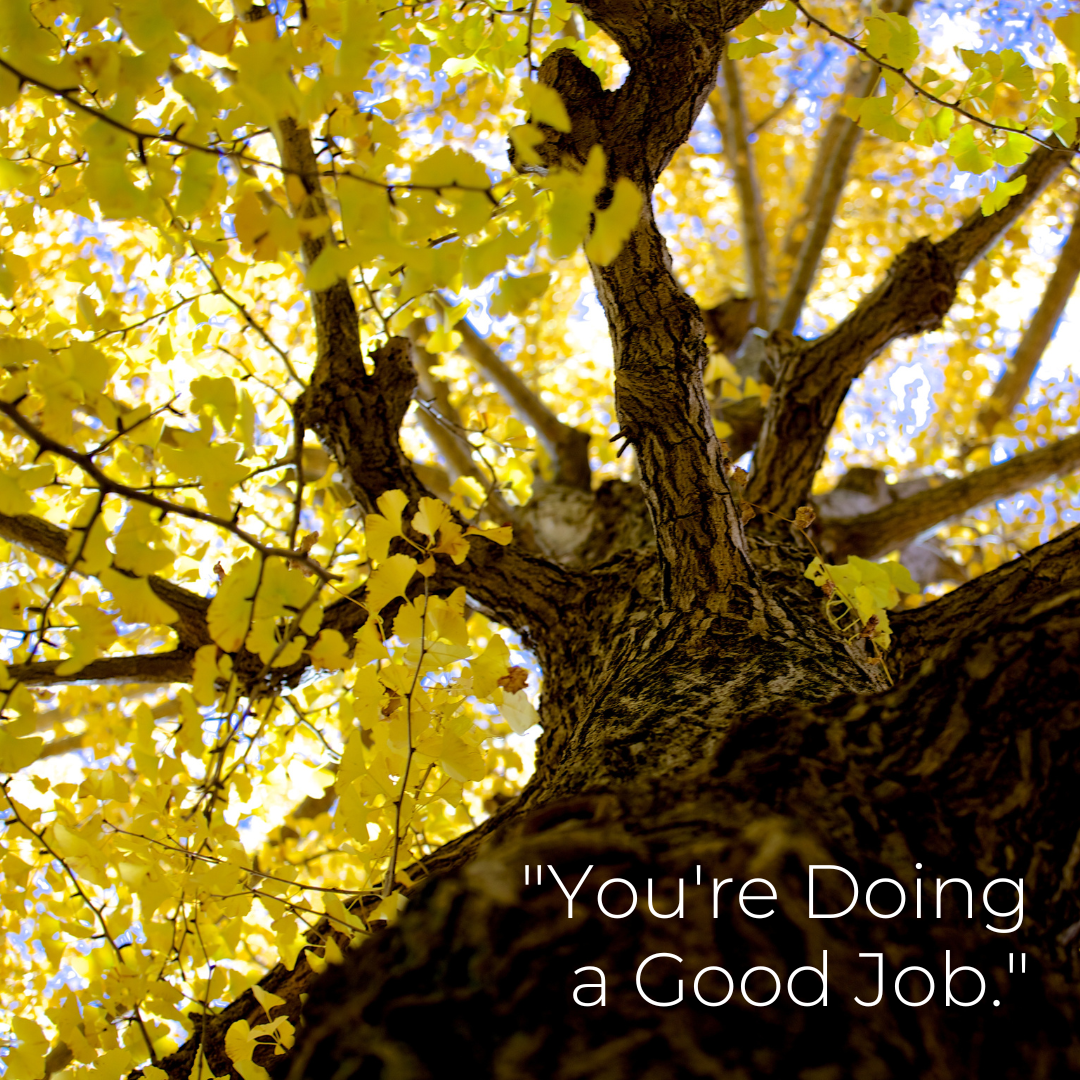
You're doing a good job.
— President Harry Truman addressing a tree on Maple Street, Independence, Missouri, 1964
President Truman, age 80, had been out of office for more than a decade. Though he remained opinionated, even fiery at times on public matters, by 1964 he was, for the most part, enjoying his Missouri retirement in peace. Writing about this season of Truman's life, his biographer David McCullough related this about the former president:
Yet on he went, taking his morning walks...with Thomas Melton, pastor of First Presbyterian Church...the pace a little slower each year, Truman doing most of the talking. Passing an enormous gingko tree on Maple Street, one of the largest, most spectacular trees in town, Truman would customarily speak to it. And what would the president say to the tree, Melton would be asked by a visitor years later. "He'd say, 'You're doing a good job.'"
Might we all be like this in our twilight—active, pragmatic, grateful, friendly, observant, and present to the world's manifold wonder. Better yet, why wait? Though undeniably much is broken in the world, the things of God—things like the giant gingko tree in Independence, Missouri—are doing a good job with the divine tasks they've been assigned. Trees cast off both oxygen and pleasant shade. Clouds stir the sky. The moon and stars light the darkness. The oceans roll perpetually onward in time and tide. It must be acknowledged they're all doing fine work.
But it's not merely the things of earth, sky, and sea that are carrying out God's work well. We are, too. We're a resourceful, problem-solving species and—even if it doesn't seem like it sometimes—on balance, we're doing a good job. Allow me to make my case.
My wife Kelly and I just took a short trip. Early in the morning, we boarded a hulking machine made mostly of aluminum yet capable of flight. After reaching a ground speed of nearly 200 mph, engines roaring, the craft was piloted gently and capably into the air, quickly reaching an altitude of 35,000 feet as, under the guidance of air traffic controllers, we adroitly avoided the other 5000 jets soaring over the country at the same time. All told, we traveled a good 1500 miles in three hours before settling down safely, predictably, routinely, in the midst of a waking city of over 8 million people. Everyone involved in the effort performed well to say the least.
Once there, a genial, hard-working man in a yellow car drove us into the sprawling metropolis. There was traffic, but given the numbers and all the personalities involved, it moved in a remarkably orderly fashion. The roads were well maintained, the signs clear, and I could follow our progress with the global positioning satellite system accessible via a handheld device I happen to own, just as you do. In the distance, the sky-scraping labors of hundreds of architects, thousands of contractors, and tens of thousands of others, rose majestically into the heavens. Millions were inside—working, living, playing, raising families, solving problems, creating wealth, and serving one another. A lot of people, all things considered, who were doing a good job. While certainly New York City has plenty of issues, our problem-solving species was hard at work there performing the various tasks fate had assigned to them. Water ran, electricity was delivered, food was served, parks were manicured, and the subways glided efficiently under the ground. Again—good work, everyone.
That evening, a cadre of courteous men and women ushered us into a gilded structure located on a bustling street called Broadway where we saw brilliantly skilled actors, who had evidently worked on their craft for years and their lines for months, powerfully and memorably render a timeless story about an ambitious Scottish king who got carried away with his earthly power. Again, good job, people. Bravo!
Then, upon returning home, I encountered something far more sacred and meaningful than any from the previous few days. I soberly listened as families and friends recounted indelible stories about those most dear to them, now gone. Two served their country admirably; one the Church with grace. The youngest unforgettably embodied a glimpse—all too brief—of eternal joy. It immensely understates the matter to say they lived well. They lived, each in their own way, ineffably, miraculously.
So may we now highly commend the trees, the earth, the sky, the sea—and also one another—with hardy recognition when they—when we—perform well that which God has given each of us to accomplish.
And what would the president say to the tree, Melton would be asked by a visitor years later. "He'd say, 'You're doing a good job.'"
Amen.
— Greg Funderburk





